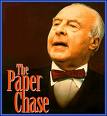 As many of you are probably aware, last week saw the passing of an American icon, Studs Turkel. Mary Dudziak of the Legal History Blog relates that the author and radio host died this past Friday at the age of 96. From his website:
As many of you are probably aware, last week saw the passing of an American icon, Studs Turkel. Mary Dudziak of the Legal History Blog relates that the author and radio host died this past Friday at the age of 96. From his website:
In 1952 Terkel began working for WFMT, first with the “Studs Terkel Almanac” and the “Studs Terkel Show,” primarily to play music. The interviewing came along by accident. This later became the award-winning, “The Studs Terkel Program.” His first book, Giants of Jazz, was published in 1956. Ten years later his first book of oral history interviews, Division Street : America, came out. It was followed by a succession of oral history books on the 1930s Depression, World War Two, race relations, working, the American dream, and aging. His latest book, Will the Circle Be Unbroken : Reflections on Death, Rebirth, and Hunger for a Faith, was published in 2001. Terkel continues to interview people, work on his books, and make public appearances. He is Distinguished Scholar-in-Residence at the Chicago Historical Society.
Mary observes this from the Chicago Tribune:
“At his bedside was a copy of his latest book, ‘P.S. Further Thoughts From a Lifetime of Listening,’ scheduled for a November release.”
From a labor perspective, Turkel made many important contributions in putting together oral histories of the life of workers, including Working: People Talk About What They Do All Day and How They Feel About What They Do and Hard Times: An Oral History of the Great Depression.
Thanks to Mary for pointing out that recordings from Terkel’s radio programs and oral history interviews are here.
Hat Tip: Patrick O’Donnell
Cross posted at Workplace Prof Blog.
 Interesting article on this topic in the NYT last week.
Interesting article on this topic in the NYT last week.

